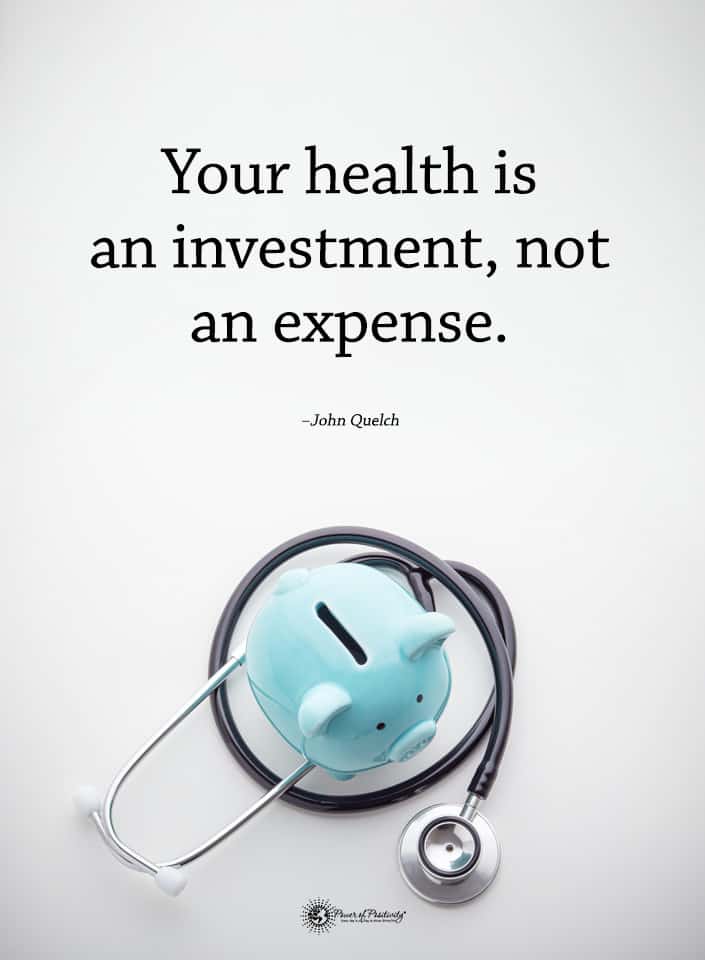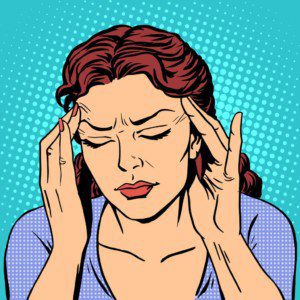Anemia (aka anaemia) is a serious disorder that adversely affects your body’s red blood cell count. Without proper treatment, anemia will rob you of your energy and, over time, could lead to serious health risks.
If you or someone you love is anemic, then keep reading. Below, we’ll go over everything you need to know about this devastating disorder and share some helpful tips to feel better immediately.
1. What Is Anemia And How Serious Is It?
As mentioned above, anemia affects your body’s red blood cell count, reducing your body’s oxygen levels. There are two major ways people can develop this condition:
- Nutrient deficiencies
- Genetics
Out of these two, nutrient deficiencies are the most common reason for anemia. About half of those diagnosed with this condition have low iron levels. Another nutrient anemic patients usually lack is vitamin B12.
Inherited forms of anemia are usually more severe than those caused by iron and B12 deficiencies. A few of these genetic forms of anemia include the following:
- Sickle cell anemia
- Hemolytic anaemia
- Complications from bone marrow diseases
- Thalassemia
2. Watch Out For These Anemia Symptoms
No matter what form of anemia you have, the most common symptom is chronic fatigue. A few other anemia symptoms include the following:
- Dizziness
- Yellow Skin
- Heart palpitations
- Regular headaches
Usually, patients don’t realize they have a problem until these symptoms become severe enough to disrupt their daily lives. By that time, however, the disease has already progressed greatly. The sooner doctors can diagnose anemia, the better. This is why everyone must get a physical check-up annually.
3. Who Becomes Anemic?
Of course, anyone can become anemic at any time, but a few groups are more prone to this disorder than others. First off, females are more likely to get anaemia than males. Pregnant women are at an even higher risk. People over the age of 65 also have a greater chance of developing anaemia.
Patients with inflammatory gut disorders like Crohn’s disease often have difficulty absorbing key nutrients needed to stave off anaemia. Also, anyone who has a genetic link with another anaemia patient might also have an increased risk of developing this condition.
Unsurprisingly, it’s well-known that smokers, drinkers, and people exposed to airborne toxins on a regular basis are at an increased risk of developing this condition.
4. What Are The Diagnostic Procedures?
Since anaemia affects your red blood cell count, it should come as no surprise that most diagnostic procedures involve taking a sample of your blood. The most common of these tests is known as a CBC (short for “complete blood count”). Doctors use results from the CBC to better understand how many red blood cells are in your system.
There’s no gold standard for red blood cell levels, but results between 40-50 percent in men and 35-45 in women are usually considered healthy. Doctors will also ensure hemoglobin levels are in the teens.
Besides looking at these red blood cell levels, it’s also important for doctors to look at how these blood cells are shaped. Sometimes anemic patients have relatively stable red blood counts, but these red blood cells are severely damaged.
Once a doctor has diagnosed you with anaemia, s/he then has to figure out what form of the disease you have. This will require further testing to ensure you have healthy iron and B12 levels and are free from other serious diseases.
5. What Are Your Treatment Options?
Since there are many different forms of anemia, many different treatment strategies are designed to help patients.
Most often people with vitamin and/or mineral deficiencies will be advised to take supplements. Blood transfusions are also a common treatment strategy for certain anemic patients (especially aplastic anemia and thalassemia).
Other treatment options could include:
- Surgery
- Injections of the hormone erythropoietin
- Chemotherapy
- Immunosuppressant medications
- Bone marrow transplants
- Importance of Iron For Anemic Patients
So, why is iron such a big deal for anemic patients? Simple: healthy hemoglobin needs a ton of iron to function. Anemic patients usually don’t have a great deal of the protein hemoglobin in their system, which is a big problem for the bloodstream.
Hemoglobin is essential for transporting oxygen throughout the body. Indeed, without hemoglobin, your blood won’t have that healthy red color. Since plenty of iron is essential for high hemoglobin counts, it’s closely related to the health of red blood cells.
On a side note, vitamin B12 also plays many critical roles in the body, including keeping red blood cells healthy. People who have anaemia often have a B12 deficiency or they aren’t able to properly absorb B12 in their foods. Thus, a diet high in both iron and B12 is essential for healing anaemia.
7. Best Foods For Anaemia
Now that we know the importance of iron and B12, it makes sense that anemic patients should incorporate foods high in these nutrients into your diet. Unfortunately, the greatest food for anemic patients is also one of the most unpalatable: liver.
That’s right, beef or chicken liver exceptionally high levels of iron and B12. Many anemic patients who add a few liver & onion dinners to their weekly routine report significant benefits in their mood and energy levels.
If you can’t stomach eating plain liver & onions, then consider mixing the liver meat in a soup or as a pâté.
Some other foods that are high in iron and/or B12 include the following:
- Grass-fed beef
- Grass-fed lamb
- Turkey
- Oysters
- Clams
- Chicken
- Mussels
A few non-meat and non-shellfish sources of iron and/or B12 include:
- Kale
- Spinach
- Swiss Chard
- Pumpkin seeds
- Broccoli
While dark green, leafy veggies benefit anemic patients, they do fall short compared with meat forms of iron and B12. This is why many people who go on vegetarian or vegan diets are at an increased risk of developing the blood deficiency.
It’s very important for anyone on or considering going on a plant-based diet to talk with their health care provider about effective ways to avoid anaemia.
8. Worst Foods For Anemia
It’s equally important for anemic patients to avoid certain foods that interfere with iron absorption. For example, foods rich in chemicals known as tannins can get in the way of iron absorption. A few of these foods include:
- Corn
- Wine
- Grapes
Anemic patients must also be careful with their calcium, caffeine, legume, and grain intake. All of these foods have been shown to harm iron absorption into the bloodstream.
Also, never eat protein while drinking milk. The calcium-rich milk will make it impossible for your body to absorb all the iron from your meal.
9. Effective Stress-Reduction Techniques
While diet is undeniably important in managing anemia, don’t forget to address your mental health. A 2008 study out of Shanghai’s Second Military Medical University found a clear link between a person’s stress levels and iron levels in his/her system. The higher the stress, the less iron in patients’ bloodstream.
The easiest way to reduce stress naturally is to meditate every day. Taking just 15 minutes to sit down, close your eyes, and watch your breath can dramatically reduce the stress hormone cortisol and increase concentration.
For those who want to ease into meditation practice, consider buying some coloring books. Believe it or not, studies have shown that coloring can serve as an effective form of mindfulness-based meditation.
Honestly, anything that brings you into the present moment could be considered a mindfulness practice. The most important thing is that you enjoy whatever you’re practicing. Here are just a few other suggestions you could try to help you keep calm:
- Yoga
- Tai Chi
- Running or biking
- Breathing exercise
- Reading
- Listening to soothing music
- Scheduling time for friends
- Drinking herbal teas like chamomile or lavender
- Taking an Epsom salt bath before bed
10. Supplements For Anaemia
If you can’t reach adequate iron or B12 levels through diet alone, you might want to consider adding a few supplements to your daily diet.
The most obvious supplements to look into include B-vitamin complex pills and iron capsules. Dosages vary wildly with these pills depending on your condition and age, so be sure to ask your doctor before you start taking them.
For those who suffer digestive disorders that affect the absorption of nutrients like iron, it might be beneficial to take a probiotic supplement every day. Probiotics are “good” bacteria that help improve the body’s immunity and digestive health.
You could also consider taking grass-fed liver supplements if you can’t stomach eating real liver. Besides liver capsules, you could also consider investing in a high-quality multivitamin.
Final Thoughts: Always Discuss Your Health Concerns With Your Doc!
Being diagnosed with anaemia can be very challenging, but thankfully there are a number of effective solutions available to you. Putting a few of the tips listed above into place can make a huge difference in your anemia symptoms. Of course, always discuss any new supplements, diet changes, or healing protocols you wish to put into place with your primary care physician.
















 Community
Community

